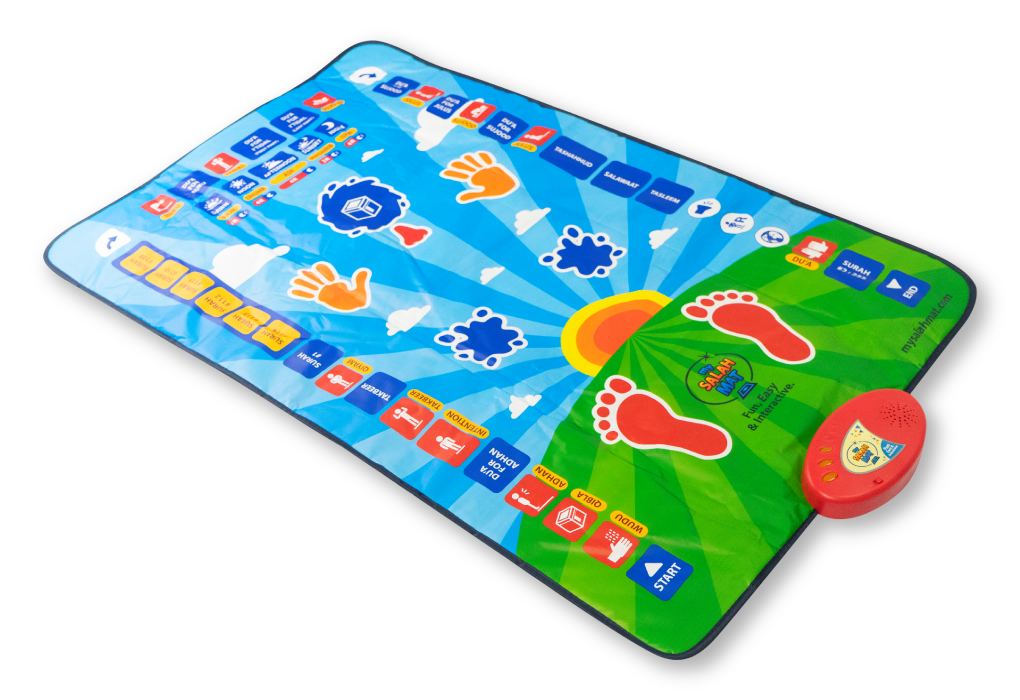Islam teaches us that Allah, in His infinite wisdom and mercy, sent prophets to guide humanity and convey His divine message. Each prophet carried forward the legacy of monotheism, kindness, and righteousness. But have you ever wondered how many prophets there were? Or who they were, and what roles they played?.
How many Prophets are in the Quran?
Throughout history, Allah chose prophets to deliver His message and guide different communities back to the worship of one true God. Although the Qur’an mentions only 25 prophets by name, Islamic teachings acknowledge the presence of many more. These 25 prophets serve as exemplary figures, each with a unique story that teaches us about faith, resilience, and devotion.
Let’s dive into some of these remarkable individuals and the roles they played, as well as the family tree of prophethood in Islam.
Join our 25 Prophets Series to receive inspiring stories and valuable lessons from the lives of Allah's chosen prophets—delivered straight to your inbox! Click here to sign up!
The 25 Prophets Mentioned in the Qur’an
-
Adam: The first prophet and the first human, Adam was created by Allah and lived in paradise before being sent to Earth.
-
Idris: Known for his wisdom and devotion, Idris preached against sin in Babylon and later continued his mission in Egypt.
-
Nuh: Nuh built the ark to save his followers and pairs of each animal from the Great Flood, demonstrating unwavering faith in Allah.
-
Hud: Hud was sent to the people of ʿĀd, who mocked his message. When they disobeyed, they were punished with a storm.
-
Saleh: Allah gifted the people of Thamud a miraculous she-camel, but when they harmed it, they were punished with an earthquake.
-
Ibrahim: Known as the “Friend of Allah,” Ibrahim’s faith was tested when he was asked to sacrifice his son Ismail, which he willingly obeyed, earning Allah’s favor.
-
Lut: Lut preached monotheism in Sodom and Gomorrah, but when his people ignored him, the cities were destroyed.
-
Ismail: Son of Ibrahim, he continued his father’s legacy of monotheism and submission to Allah.
-
Ishaq: Brother of Ismail and son of Ibrahim, Ishaq also carried on the message of faith.
-
Yaqub: Known as Israel, Yaqub is the father of the twelve tribes.
-
Yusuf: Known for his patience and forgiveness, Yusuf endured betrayal by his brothers and imprisonment but remained steadfast in faith.
-
Ayyub: Ayyub endured years of hardship and illness yet maintained his faith, setting an example of patience.
-
Shuʿayb: Sent to the Midianites, Shuʿayb warned them against corruption, but when they ignored him, they faced Allah’s punishment.
-
Musa: Musa is mentioned more than any other prophet in the Qur’an. His mission and perseverance became a model for Prophet Muhammad (PBUH).
-
Harun: The brother of Musa, Harun supported him in spreading Allah’s message.
-
Dhu’l-Kifl: He is believed to have spread Allah’s teachings in Iraq.
-
Dawud: A king and prophet, Dawud received the Zabur (Psalms) and defeated Goliath in battle.
-
Sulaiman: Known for his wisdom, Sulaiman could communicate with animals and Jinn and ruled Israel justly.
-
Ilyas: Ilyas preached monotheism to those who worshipped Baal in northern Israel.
-
Al-Yasaʿ: Believed to have miraculous powers, Al-Yasaʿ continued Ilyas’s mission.
-
Yunus: Sent to Nineveh, Yunus initially left his people in frustration, only to repent after being swallowed by a whale.
-
Zakariyya: Father of Yahya and guardian of Maryam, Zakariyya is honored for his piety.
-
Yahya: Known for his piety, Yahya foretold the coming of Isa (Jesus) and upheld Allah’s message.
-
Isa: Isa preached to the Israelites and performed miracles, embodying compassion and humility.
-
Muhammad (PBUH): The final prophet and “Seal of the Prophets,” Muhammad’s message is preserved in the Qur’an and is intended for all of humanity.
The Family Tree of Prophethood in Islam
Prophets in Islam often come from a noble lineage, each one part of a chain that Allah designed to guide humanity. Here’s a brief look at the family tree of prophethood:
-
Prophet Adam [AS] was the first human and prophet. His lineage continued through his son Sheeth, who isn’t always listed but is considered a prophet.
-
Prophet Nuh [AS] is a direct descendant of Adam’s lineage through Sheeth.
-
Prophet Ibrahim [AS] descends from Shem, the son of Nuh. Ibrahim’s two sons, Ismail and Ishaq, continue his prophetic line.
-
Line of Ishaq: This line includes Prophets Yaqub, Yusuf, Musa, Harun, Dawud, Sulaiman, and Isa, among others, mostly associated with the Israelites.
-
Line of Ismail: Prophet Muhammad (PBUH), the final prophet, descends from Ismail, marking the culmination of prophethood.
Honoring the Prophets
In Islam, we honor each prophet as an embodiment of Allah’s guidance. When Muslims mention their names, they say “peace be upon him” (PBUH) as a mark of respect. These prophets not only taught us about worship and ethics but also showed us the importance of resilience, faith, and integrity.
The lives of these prophets remind us of Allah’s mercy in sending guidance to all of humanity, regardless of time or place. Each prophet’s story, full of trials and triumphs, serves as an enduring source of wisdom and inspiration.
Reflecting on these prophets encourages Muslims today to live with purpose and dedication. Through their lives, we’re reminded that Allah’s guidance has been with humanity every step of the way.















 Liquid error (snippets/@AlternatingContentX line 127): Could not find asset snippets/CustomTexts-.liquid
Liquid error (snippets/@AlternatingContentX line 127): Could not find asset snippets/CustomTexts-.liquid